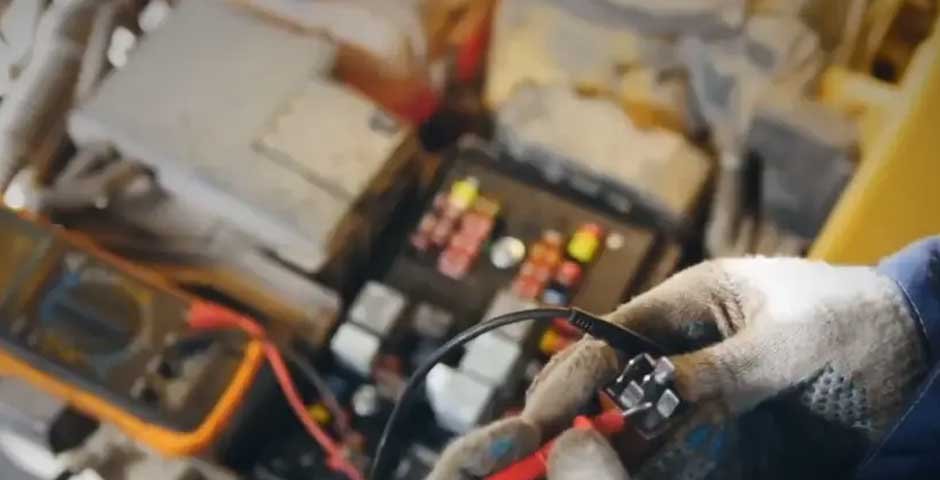Electrical work is an essential aspect of both residential and commercial construction and maintenance. While there are similarities between the two, several key differences exist in terms of installation, wiring, equipment, safety considerations, permits, and regulations. Asbury Electric – electrician in Williamsburg, VA offers professional service when it comes to both residential and commercial electrical work. In this comprehensive blog post, we will explore these differences, provide guidance for best practices, and discuss the current state of the electrical industry.
Overview of Electrical Work: Key Terms and Concepts
Electrical work involves the design, installation, repair, and maintenance of electrical systems that provide power, lighting, and control in buildings. Some key terms and concepts related to electrical work include:
- Voltage: The force or pressure at which electricity flows through a circuit.
- Amperage: The measure of electrical current flowing through a circuit.
- Circuit: A closed loop through which electrical current flows.
- Load: The amount of electrical power consumed by devices connected to a circuit.
- Conductor: A material, usually metal, that allows the flow of electrical current.
Differences Between Residential and Commercial Electrical Work
Installation
Residential electrical installations typically involve lower voltages and less complex systems than commercial installations. Homes generally use single-phase power, while commercial buildings often require three-phase power to handle larger electrical loads. Additionally, commercial installations may include specialized systems such as backup generators, uninterruptible power supplies (UPS), and advanced lighting controls.
Wiring
Residential wiring mainly consists of non-metallic sheathed cables (NM cables) concealed within walls and ceilings. In contrast, commercial wiring often uses metal conduits or raceways to protect and organize cables. Commercial wiring may also require shielded cables to minimize electromagnetic interference (EMI) in sensitive environments like hospitals or data centers.
Equipment
Commercial electrical systems use different equipment and components than residential systems, such as:
- Panelboards: Commercial panelboards are designed to handle higher amperage and voltage requirements, and they often include advanced features for monitoring and control.
- Transformers: Commercial buildings may require transformers to step down voltages for specific equipment or lighting systems.
- Motors and Controls: Commercial electrical work often involves the installation and maintenance of motors, motor controls, and variable frequency drives (VFDs) for HVAC systems, elevators, and other equipment.
Safety Considerations, Permits, and Regulations
Both residential and commercial electrical work must adhere to strict safety standards and regulations, including the National Electrical Code (NEC). However, commercial projects usually involve more stringent requirements due to the increased complexity and potential hazards associated with larger electrical systems. Some key safety considerations include:
- Grounding and bonding: Ensuring proper grounding and bonding is critical for preventing electrical shock and fire hazards in both residential and commercial settings.
- Arc fault and ground fault protection: These safety devices are required in specific areas of both residential and commercial buildings to protect against electrical fires and shock hazards.
- Emergency lighting and exit signs: Commercial buildings must have adequate emergency lighting and exit signage to facilitate safe evacuation during power outages or emergencies.
Permits and inspections are typically required for both residential and commercial electrical work to ensure compliance with local building codes and safety regulations.
Common Misconceptions and Best Practices
Some common misconceptions about electrical work include the belief that residential and commercial work are interchangeable, or that any electrician can handle both types of projects. In reality, commercial electrical work often requires specialized knowledge, training, and experience that may not be necessary for residential projects.
- When choosing an electrician, look for one with the appropriate qualifications, licenses, and experience for your specific project. Additionally, ensure that they are familiar with local building codes and safety regulations.
- Regular electrical maintenance is crucial for both residential and commercial properties to ensure the continued safety and efficiency of electrical systems. Schedule routine inspections and address any issues promptly to prevent costly repairs or hazards.
In Conclusion
Understanding the nuances and variations between residential and commercial electrical work is crucial for ensuring safe, efficient, and code-compliant installations and maintenance. By following best practices and staying informed about new developments in the industry, you can make informed decisions about your electrical needs and ensure a safe, reliable, and efficient electrical system for your home or business.






